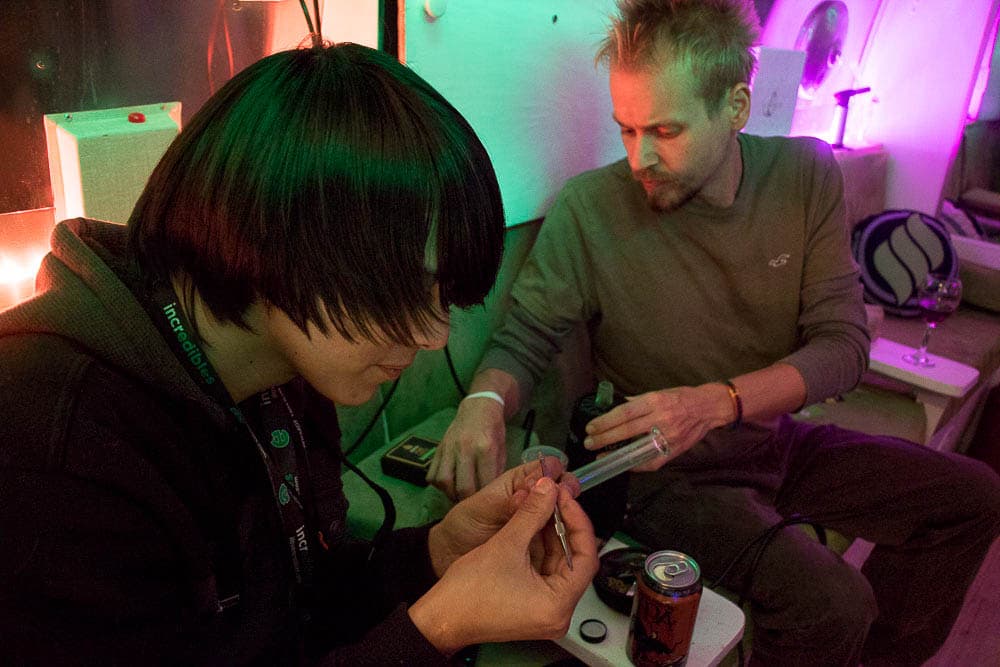
With only one meeting left to go for Denver's Social Consumption Advisory Committee, there are still a lot of unknowns about how the city should allow marijuana to be used at events and businesses.
The committee tasked with shaping Initiative 300's roll out has been split on how accessible social consumption areas should be, whether customers should be allowed to use alcohol and marijuana under the same roof and what to do about the smell of marijuana if people consume outdoors.
On the other hand, the 20-person group generally agrees that consumption should be kept away from children, that neighborhoods should get a chance to weigh in on what businesses are permitted through needs and desires hearings and that permitted events should look nothing like the city's annual 420 celebrations.
Committee member Emmett Reistroffer worked on the campaign to get I-300 passed in the fall. On Friday, Reistroffer said he was "appalled" the city continues to allow the 420 Rally to be held in Civic Center Park.
"It is one the most recklessly organized events I've ever seen in my life. There are children and young people everywhere with widespread consumption," Reistroffer said. "I don't want that 420 Rally to be an example of what we fought for because it's what we're trying to stop."
That sentiment was something even committee member Rachel O’Bryan could get behind despite working on the campaign against Initiative 300.
I-300, in a nutshell, allows just about any kind of business that doesn’t sell marijuana to apply for a cannabis consumption permit under the Neighborhood-Supported Cannabis Consumption Pilot Program. If approved, a business owner can set up space for people to use marijuana in their business.
The program also has an avenue for event organizers to apply for permits to set up temporary consumption spots. Those spots can't be on public property and permit holders have to follow the same rules as permitted businesses such as paying $2,000 in fees, only allowing those 21 and older to enter, locating at least 1,000 feet away from schools and keeping consumption out of the public eye.
In theory, an event organizer could find a privately-owned parking lot, get a permit and set up tents or another temporary structure for a consumption area during A Taste of Colorado, First Friday Art Walks and other big scale events in the city.
"My issue with special events is we don't know. We don't know what we don't know. We don't know what to even expect," said Ashley Kilroy, executive director of Denver Excise and Licenses. "If we get these rules going and adopted say by July, then we have July, August and September — big, huge event months, right? What if we said one a weekend, because we said we're going to see how this thing goes."
Kilroy will ultimately make the call on what rules her department places upon permit seekers.
"The Department of Excise and Licenses has the authority to implement our policies and procedures, so we could just develop rules and regulations, but instead what we're going to do is have a formal process," Kilroy said. "We're going to take all these recommendations, and my office is going come up with what they think is the best thing to do. Then, we'll post it online for the public to see and comment on, and then we're holding a hearing."
The public hearing will likely be in May or early June. The city's hoping to have Kilroy sign off on final rules in June or July so businesses could start getting permitted this summer. In May, City Council can start adding conditions of its own for the Neighborhood-Supported Cannabis Consumption Pilot Program.
Business & data reporter Adrian D. Garcia can be reached via email at [email protected] or twitter.com/adriandgarcia.
Subscribe to Denverite’s newsletter here.










